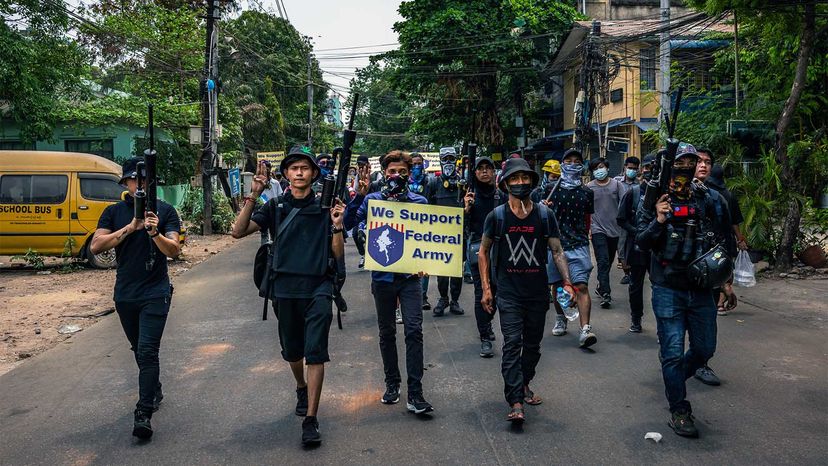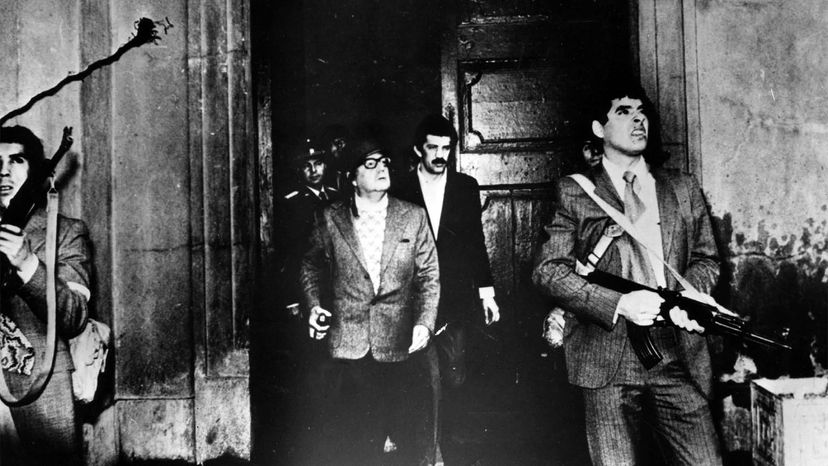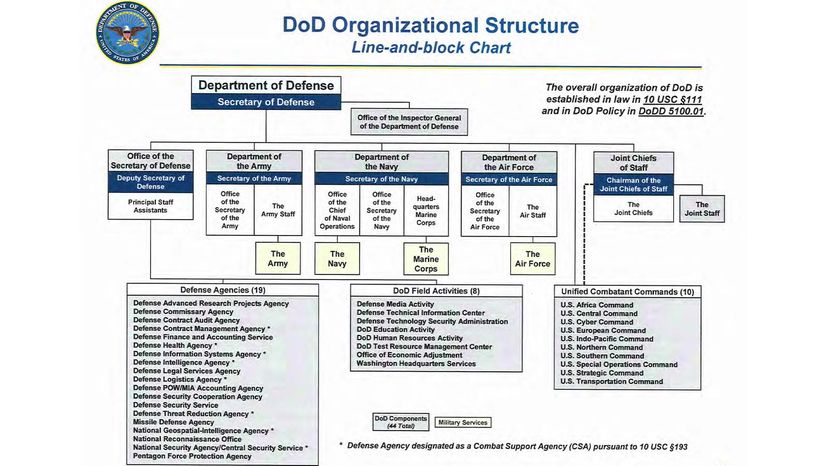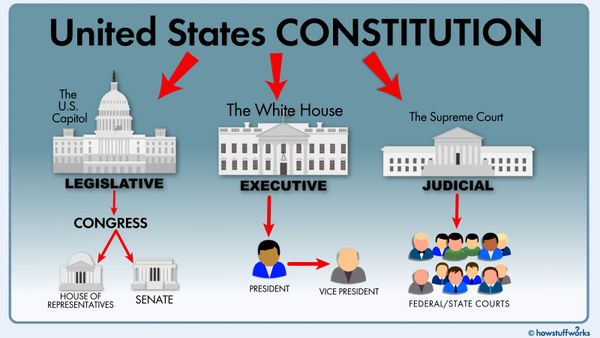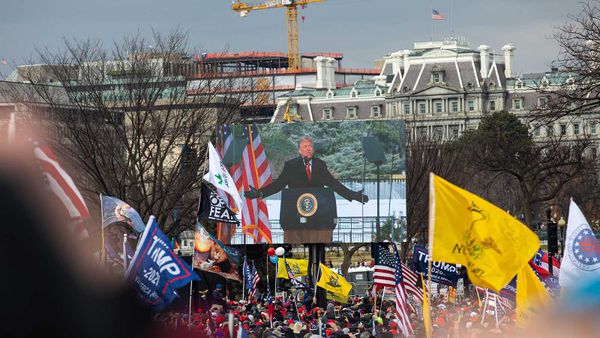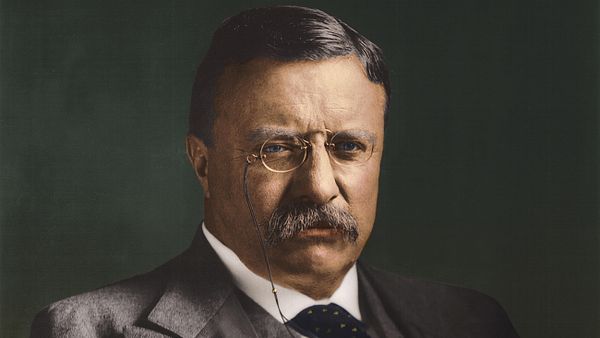So, with that in mind, could a coup d'état happen in the U.S.? Experts say it's improbable, though not impossible.
Coups rarely happen in what political scientists have termed "consolidated democracies," where democratic institutions are deeply and firmly entrenched. "The United States is a consolidated, albeit severely flawed, democracy," Klaas says.
Anderson says three major factors contribute to the United States' "coup-proofing." The first is an independent court system. By and large, U.S. courts are non-partisan and beholden to judge, jury and legal precedent rather than a particular political party. This holds true even for Supreme Court justices, who may be appointed directly by a sitting president.
Second is military chain of command. The president holds the highest rank in the military; as Commander in Chief, every general answers to them. And as an institution, respect for authority in the military runs deep.
But if corruption enters the hierarchy, there are still checks in place. Soldiers have the right to refuse orders that strike them as "palpably illegal." Furthermore, U.S. military personnel are not a completely homogenized group.
As of 2021, people of any gender, racial background, sexual orientation or political persuasion can — and are encouraged to — serve. Together, these (theoretically) ensure that one political actor or party does not achieve an unbreakable stranglehold over military power.
Finally, there's the sheer byzantine sprawl of the United States government. "We have a highly decentralized system," Anderson says, "it's actually fairly difficult to hijack the system, because you would need to hijack lots and lots of parts."
Some political scholars have argued that the 25th Amendment, which allows a sitting vice president to take over for a president who is deemed "unfit for office," could amount to a non-military coup under the right circumstances. Other individuals have argued on Facebook that the Insurrection Act of 1807 somehow provides a legal loophole that would authorize the former president to command the military — a claim that Anderson calls "complete nonsense."
But democracy needs to stay vigilant. Once the idea is in the air, a coup becomes marginally more possible, feeding the fears and false beliefs of a small group of extremists. That's why, as Klaas says, "Flynn's statement was extraordinarily dangerous."
